We’ve all heard stories of people winning insane amounts of money on the lottery and, due to their lack of self discipline and financial know how, squandering every penny. But not every lottery winner is so foolish. The smart ones can offer a lot of insight on what to do if you ever win. From the man won the lottery 7 times, to the hilarious ways winners have remained anonymous, let’s discuss the smartest lottery winners of all time.
Emma Wildin
Until July 31st, 2013, Emma Wildin was a stay at home mom like any other, from Cinderford, England. But everything changed for Emma and her family that fateful morning, when she purchased a lottery scratch card on a whim and won £1 million.
Unlike the USA, where most lottery winnings are taxed by default, in the UK, only the interest gained on the winnings is taxed. So, with the full £1 million at her disposal, many doors had opened for Emma and her family. While Emma wisely tried to keep her win a secret, a local newspaper caught wind of it, and it soon became public knowledge. But despite that, aside from her elderly parents,
Emma made yet another smart decision in not giving handouts to everyone who began expectantly asking for them. As many lotter winners learn all too soon, once you start handing out cash to extended family and friends, it can soon get out of hand. Relationships change for the worse, and the risk of exploitation and manipulation is high.Emma’s husband Phil, luckily, was a financial advisor, and helped her make informed decisions with the win. That type of support isn’t readily available to a lot of lottery winners, often leading to poor investments, lavish spending and ultimately financial collapse. But with a measured approach, and helpful advice, Emma spent her winnings wisely.

The family decided to allocate £100,000 to splash on whatever they wanted, including a second hand range rover and some new clothes. The other £900,000, meanwhile, would be mostly invested in property; one of the most reliable forms of investment.With Emma overseeing the renting out of two houses, she has her own stream of income, and still has enough leftover winnings to give her children a good life. As Emma learned, after a lottery win, it’s best to set your boundaries and stick to them. Even if that does mean straining relationships with people who feel entitled to a portion of your winnings.
David Kaltschmidt and Maureen Smith
When you win the lottery, who do you call first? Your parents? Your significant other? Your kids? Well, for David Kaltschmidt and Maureen Smith, secrecy was so important to them that they didn’t even tell their adult children until they had their affairs in order, an entire month later!
While that might seem a little unusual, there’s a good reason for it. At the time of their win, it was one of the
biggest Powerball jackpots in history, at $528.7 million, and with that kind of money, the fewer people who know, the better. There are countless horror stories of family members employing dirty tactics, blackmail and even inflicting serious harm on winners for a share of the cash.With those stories in mind, and in disbelief at their good fortune, the couple quickly reached out to financial experts. As is usually the case, the couple had to make the difficult decision between taking the $528.8 million in instalments over 30 years, or taking a smaller lump sum of $327,800,000.
Meet Couple Who Are $187 Million Richer After Winning Florida Lottery by Inside Edition
With instalments, the overall taxation is significantly less than with a lump sum, as the smaller payments will always fall into lower income tax brackets. Why that is can be explained, using an example of a one million dollar win. For that, we’ll assume we’re in one of the lucky few US states that don’t charge state income tax on top of federal income tax.On a one million dollar win, 10 annual payments of $100,000 would only be subject to an effective federal tax of 18% each, meaning $18,000 annually, or $180,000 over 10 years. A single, immediate $1,000,000 payment, meanwhile, would fall into the highest tax bracket, garnering an effective federal tax bill at 34%, or $340,000!But equally, although higher taxes diminish the immediate winnings, taking a lump sum opens up significant opportunities. With wise investments, that reduced sum can grow enormously, potentially exceeding the instalment option total in the time that would’ve been spent waiting for the rest of the instalments.

Plus, currencies lose value over time, so the relative value of the winnings by the time the final instalment is paid could work out less than expected. Ultimately though, making a lump sum the more profitable option depends on the success of the winner’s investments over time.But for older winners or winners with health issues who may not live out the full term of their instalment plan, a lump sum works out being the better option. If you choose instalment winnings and die before receiving them all, most of the time, the instalments become part of your estate for your family.
However, that usually means the state will claim estate tax for the entire win, immediately after you die. On a huge lottery win taken in smaller instalments, the amount needed to cover the estate tax on the total win will likely be far more than the cash available at the time. In those cases, serious debts can arise, which is the last thing a grieving family wants.So, for slightly older people, a smaller lump sum makes more sense. With those factors among others in mind, David and Maureen who were 56 and 71, respectively, at the time decided to opt for the lump sum. Despite having so much money to their name, however, they continued living much the same as they always had.They remained in their $300,000 Florida home, kept their old Boston Whaler boat instead of buying a yacht, and continued shopping at the local grocery store. Their only splashes were on a Tesla for Maureen and a slightly upgraded version of David’s previous SUV.Opting to maintain their previous lifestyle, the couple put most of their winnings aside for investments and savings, and began using the rest to invest in local charities. And once they finally got around to telling their kids about their win, they gave them a little pocket money too.
Yancy Hicks
For some lottery winners, a sense of satisfaction comes not from endless luxury, but from the relatively simple things winning makes possible. For 51 year old Chicago resident Yancy Hicks, the greatest satisfaction came in the form of a new job role. After working at McDonald’s for years, Yancy’s life improved significantly when he won $1 million in 2008.
But while he did splash out a little on a $30,000 red Corvette, his other spends were more restrained. He bought himself a relatively modest house, the first he’d ever fully owned and put a chunk away for his daughter’s college education. Then, while continuing to work at McDonald’s for 4 months after his win, Yancy arranged to purchase a Subway franchise in town.
For all the other positives of the win,
Yancy claimed in an interview that nothing beat finally being his own boss at Subway. He also noted that winning a million doesn’t mean you can go buy a mansion in the Caribbean. But if you’re smart, it gives you an entirely new chance to establish a solid foundation, and build upwards from there.
For Yancy, after years answering to his bosses at McDonald’s, that win was just the step up he needed. To this day, he still fondly recalls being on his way to work at his newly acquired Subway, worrying that he was a couple of minutes late. Then, in a moment of clarity, he said to himself, "you're the owner! Don't worry about it! You get there when you get there."There are negatives to winning the lottery, sure. But, for someone like Yancy, that little piece of newfound freedom from a smart investment overcomes them all.
Brian and Mary Lohse
Being smart with a lottery win isn’t always about hoarding the money or pumping it into investments that may or may not grow your wealth. If your social standing in the public eye, or just being a moral person are things you value, it’s equally wise to give back to the community with your winnings.
Couple Claims $202.1 Million Powerball Jackpot! by Iowa Lottery When Brian and Mary Lohse
won a $202 million Powerball jackpot, they decided that seeing as they didn’t really earn the money, they may as well share a good portion of it. They first assembled a team of financial experts, and utilized Brian’s knowledge of estate planning to make sure everything was above board and stable, before switching full force into giving mode.
So, with a commitment to improving their town of Bondurant, Iowa, they began writing cheques and gleefully watching people’s lives change for the better. They paid off the mortgage of their local Church, and donated $3 million for a new stadium for the local High School. But the most useful change came when the Lohses built a $4.5 million grocery store in Bondurant, to save locals having to go to the next town for their groceries.Needless to say, following those kind deeds, the locals of Bondurant were a far cry from the standard jealous neighbors one might expect following a hefty lottery win. With their generosity, the Lohses established themselves as a very well respected family indeed.It’s pretty amazing to see how much change a single, generous family can have on a community. And considering they won $202 million, those donations barely made a dent in their winnings. It goes to show if you win big, it’s absolutely possible to be kind, smart, and still have more than enough to support your family for generations.
Brad Duke
For some people, a huge lottery win isn’t quite enough in itself. For someone like Brad Duke of Star, Idaho, his lottery win in 2005 was merely the beginning.
Opting to take his $220 million jackpot prize as a $125 million lump sum, Brad committed to the task of turning his winnings into $1 billion over 15 years. That was made slightly trickier by the fact that the $125 million lump sum was reduced to $85 million after taxes. But regardless, that hiccup didn’t dampen Brad’s vision.
30 years of Powerball: the 'luckiest store in America' and 2005 winner Brad Duke by KTVB Hiring a financial team of 3 experts to work full time, Brad geared his focus towards smart investments, expanding his existing fitness companies, and getting into real estate. Buying up raw land and building commercial and residential developments, he utilized his team’s expertise to begin establishing a real estate empire.In the first year, Brad had already increased his winnings by $15 million. Continuing a relatively restrained lifestyle, save for the occasional vacation here and there and helping out his family when needed,
Brad continued on his path of determination. While his wealth continued to grow, it didn’t quite hit $1 billion in 15 years. But Brad continues towards his billion dollar aims to this day, increasing his wealth and providing a prime example of how to win the lottery the right way.
Richard Lustig
For most people, a single big lottery win would probably feel like a lifetime of luck being used up all at once. But for Richard Lustig, when it came to lottery jackpots, his lucky number was 7. With 7 separate wins of varying magnitude, in a range of different lotteries, Richard won over $1 million before he passed away in 2018, aged 67.
But, by Richard’s own accounts, luck was only a small factor in his wins. He proudly admitted to utilizing some strange methods that he claimed boosted his chances of winning. For starters, he insisted that the majority of winnings should be spent on more lottery tickets.He also suggested always using the same numbers until they won, then never using them again, as in his words the ‘same numbers never win twice’. That last claim is actually completely incorrect on Richard’s part. But it wasn’t necessarily his alleged winning methods that made Richard Lustig a success story; it was his ability to spot an opportunity. Making a business out of his 7 wins,
Richard shared his methods in the form of books, software, TV appearances and by being a regular, well paid fixture at lottery related events.
Richard Lustig on Huff Post Sharing Secrets on How to Win The Lottery by WinningLotteryMethod
Of course, Richard’s total lifetime winnings of $1 million weren’t exactly a humungous amount compared to other lottery winners. Plus, his supposed methods of increasing the chances of winning are dubious at best, and nonsensical at worst.The likelihood was that he just spent huge amounts of money on tickets, increasing his odds slightly, aided by a sprinkling of genuine good luck. But his methods of winning weren’t what made him clever. It was his keen eyed ability to turn his successes into a source of media fascination that left him a considerably wealthy man. And for that reason, he earns his rank among the smartest lottery winners of all time.
James Harvey
Not all alleged methods for turning the lottery odds in your favor are as questionable as Richard Lustig’s. James Harvey and a group of fellow MIT students used statistics based methods to win $3.5 million over a period of four years.
Their success came from the Cash Winfall lottery game, which involves players matching 6 numbers on their scratch card with random numbers drawn each week. James figured out that, if no one claimed the top prize by matching 6 numbers, most of the winnings would filter down to secondary winners who only matched four or five numbers.Seeing as, 98.6% of the time, nobody hit the jackpot, James realized that by buying those scratch cards in large quantities, he actually had a relatively high chance of winning. In fact, he calculated that for every dollar he spent, he could expect to get $1.15 back.

©BeAmazed
Eventually, James and the students he convinced to get on board formed a company for the purpose, called
Random Strategies Investments, LLC, and began turning a substantial profit. The difficulty, however, was finding stores that could handle processing the huge quantities of scratch cards needed for success, as that required purchasing hundreds of thousands of $2 tickets weekly. Still, despite the difficulty, the group continued to turn a handsome profit.
Unfortunately, though, in 2011, the lottery restricted the number of tickets any store could sell in a day. Without the ability to buy enough tickets, Random Strategies Investments, LLC’s winning streak came to an end. But, having earned $3.5 million in their venture, James and his comrades remain among the smartest to have ever profited from the lottery.
Joan Ginther
Sticking with the theme of using mathematics to win big, no individual has been more successful than Joan Ginther. Before a series of big wins saw her earn a total of over $20 million, Ginther was a university professor with a PhD in statistics from Stanford.
She used her statistical knowledge, alongside buying a huge number of lottery scratch cards for a brilliant, if not slightly sneaky purpose. Using publicly available info, she could figure out how many tickets had shipped, how many prizes were left, and in which stores the likely winners might wind up.She even decoded the pseudo random algorithm that determined roughly when and where the winning tickets would be found within ticket delivery packets sent to stores. With those techniques, she won the jackpot four times. But while she ended up
$20 million richer, she had to buy an estimated $3 million worth of tickets along the way.While those were funded by previous winnings she’d earned, if her plan had fallen apart at any point, she could have been left severely out of pocket. But, ultimately, her scheme held strong, and she now resides in Las Vegas, keeping a low profile to avoid the trappings of being famous for cheating the lottery.
Jason Fry
Sadly, it seems to be a rarity for those lucky enough to win the lottery to possess the traits of ambition, restraint, and business-savviness. Perhaps that’s why 70% of lottery winners end up bankrupt in just a few years after winning. But Jason Fry was one of the rare few that seem to have all of those useful traits in abundance.
Admittedly, when he won $14 million in the Florida lottery in his 30s, Jason splashed out a little at first. He treated himself to a Cadillac Escalade, a boat, a motorcycle, a Ford Mustang Shelby, and a house in Fort Myers. But unlike most winners, the life of leisure and splashing his cash soon grew stale for Jason. But the easy life became boring for Jason; he needed more.So, using the know how he’d acquired through decades of hard work before his windfall,
he started making business investments. He bought a golf driving range on Daniels Parkway in Fort Myers, which soon began to turn a tidy profit under his leadership. He then purchased several Batteries Plus franchise stores, and again, his strong business sensibilities soon turned one of them into the brand’s best performing store in the nation!Sharing his thoughts on how he managed to maintain success, Jason has revealed it’s all about being sensible. Investing conservatively, remaining flexible, and researching properly before pumping money into something are all essential for any lottery winners who want to hold onto their newly acquired wealth.
John and Lisa Robinson
For some lottery winners, a rocky start can provide an important learning experience. Whether or not those lessons are taken on board can govern the entire future of a winning family.
When John and Lisa Robinson of Munford, Tennessee won over $500 million in 2016, their attorney gave them some incredibly poor advice which had long lasting, negative effects for the family.
Seemingly attempting to get his name in the public eye for more business, the attorney advised the Robinsons to
announce their win including the amount on national morning news. As any knowledgeable lottery winner will tell you that was a seriously bad idea. With the win publicized, the family began receiving an endless torrent of requests for money from hangers on, as well as losing a great deal of privacy.
Tennessee Couple Relive The Moment They Won $533 Million Powerball by Inside Edition For many lottery winners, that loss of privacy can severely taint the win, as their everyday life comes under the scrutiny of journalists desperate for an angle. For those reasons, if you ever happen to win the lottery, it’s advisable to delete all social media, to ensure no tabloid press ever has anything to slander you with.On top of all that, lottery winners are subject to vindictive, jealous comments given by passers by, which the Robinsons began experiencing regularly. You may be thinking, why does it matter? They’re still millionaires, aren’t they? Well yes, but they’re still people. Aside from the emotional toll that often drives winners to drugs and alcohol, losing privacy can be a financially costly affair too.The Robinsons’ initial plans to remain in their family home were crushed by reporters grappling for interviews as well as locals curious about the family. They ultimately decided to move to regain some privacy, albeit to a very nice, $6.2 million home. In doing so, they learned some valuable lessons, that appear to have put their lives back onto pleasant tracks.
They learned the importance of remaining private, having experienced the loss of privacy and the ugliness it entails first hand. They also ditched their attorney, having learned to be much more selective with the types of people they consult and take advice from. With those lessons always at the back of their minds, their finances seem headed in a stable direction, and the family seems to be living a much happier life.
Sue Herdman
For Sue Herdman from the village of Eardisley, England, luxury and leisure were thrown out in favor of dirt and stankyness when she won £1.2 million on the lottery. Hanging up her scissors from her old job as a hairdresser, she delved head first into a lifelong dream of hers: being a pig farmer.
The Power of Belief: The Inspiring Story of Susan Herdman, Won £1.2 Million in the National Lottery by Official Lottery Stories Nowadays, she spends most of her time delivering 1,000 new piglets a week, and hand feeding them where necessary. While other lottery winners are kicking back on yachts, Sue gets up at 6:30AM and works tirelessly, sometimes late into the night.But despite all the filth, Sue finds far more joy in raising little piglets with care than she ever would in designer clothes and penthouse suites. And with a share of her winnings invested in her increasingly successful pig business, it’s a wise financial decision as well as a meaningful job.
Anonymous Geniuses
In parts of the world, winning the lottery doesn’t just make you a target for jealous comments in the local supermarket; it can actually put your life in danger. In Jamaica, for example, lottery winners are occasionally targeted with harassment, scams, robberies and even kidnappings for ransom.
To counteract that risk, winners of the Jamaican lottery have developed an ingenious way to keep their identities preserved. For starters, they insist on using condensed versions of their names on any photo opportunity cheques.
But the smartest and funniest part is that they also turn up to those publicity events in
masks to hide their faces! From “scream” masks to winking emojis and even face covering dreadlocks, those winners keep their privacy hidden while providing a humorous spectacle for onlookers.If you were amazed at the smartest lottery winners, you might also want to check the
dumbest lottery winners. Thanks for reading!







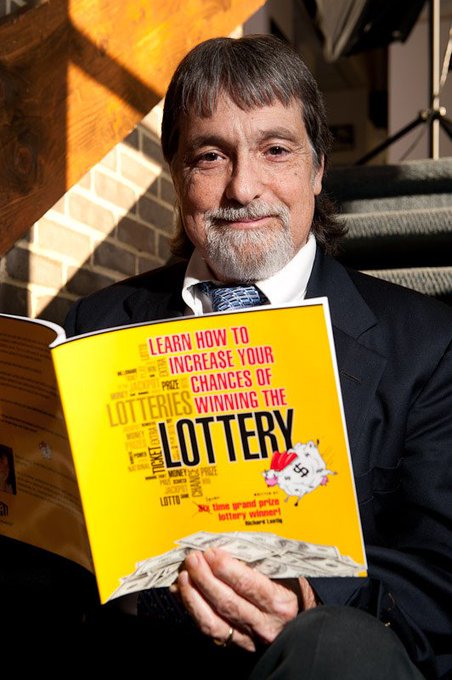
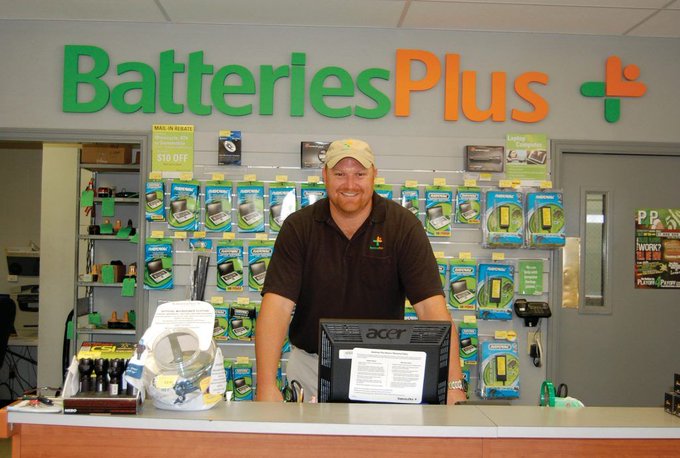
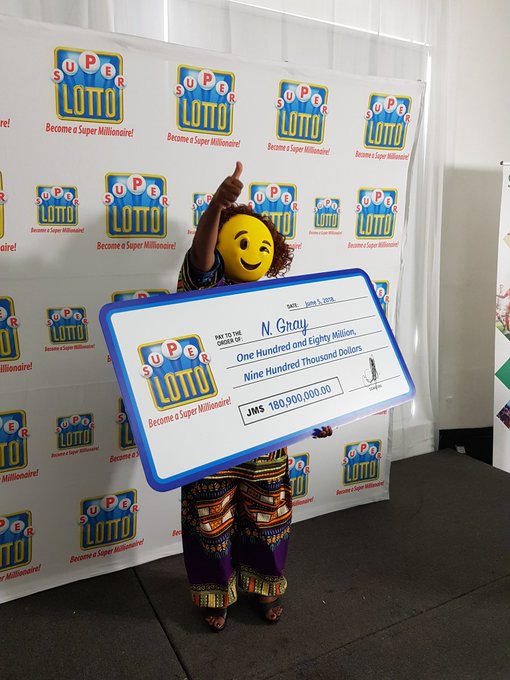
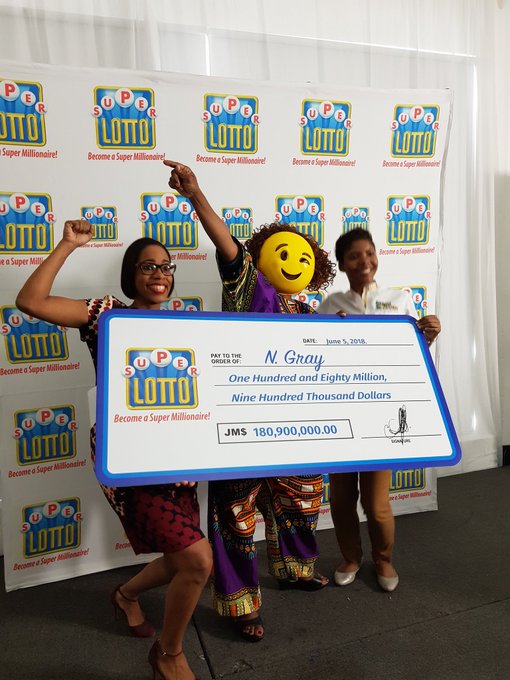
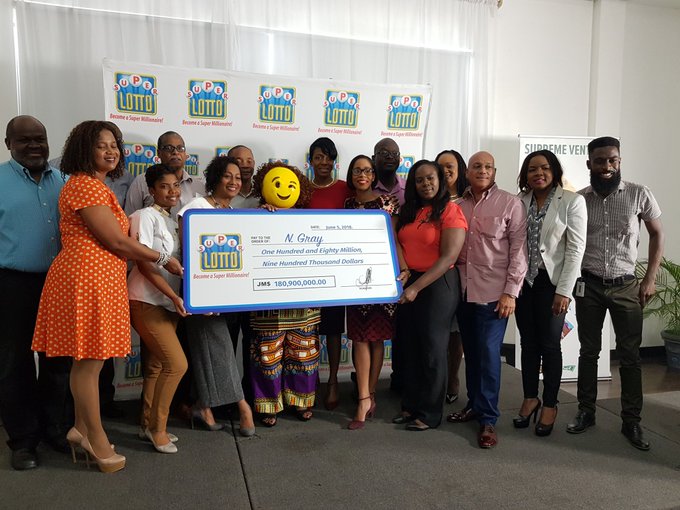
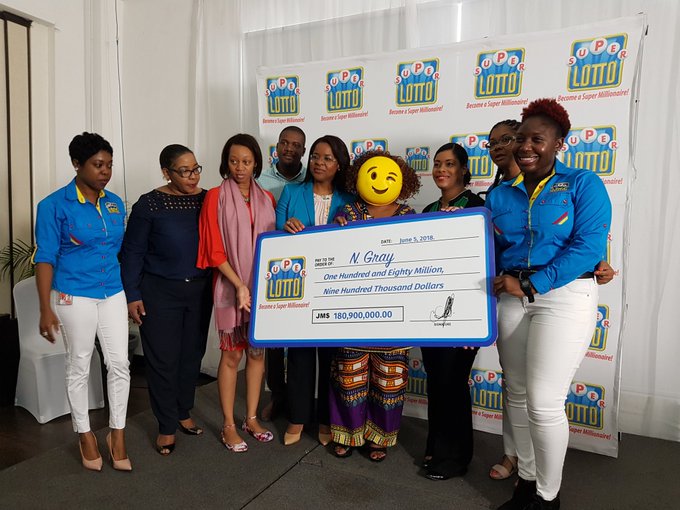

](https://beamazed.b-cdn.net/dfhvoxjgb/image/upload/v1716778232/flight-secrets-that-are-never-told-to-passengers/67JZM0qodjOjxIsOK2ZxoF.jpg?width=400)









